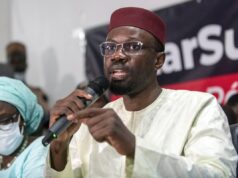Nigeria’s former president and military leader, Muhammadu Buhari, has passed away at the age of 82. He died in London earlier today after a prolonged illness, as confirmed by official sources from the Nigerian presidency.
Buhari, who first ruled Nigeria as a military head of state from 1983 to 1985, returned decades later to lead the country as a democratically elected president from 2015 to 2023. He made history in 2015 by defeating incumbent Goodluck Jonathan — a landmark moment in Nigeria’s political development. Throughout his presidency, Buhari positioned himself as a staunch anti-corruption crusader and a firm believer in discipline and order. However, his administration was also marked by economic struggles, rising insecurity, and public backlash over issues like police brutality, particularly during the #EndSARS protests.
Despite criticism over selective governance and an often-muted response to public outcry, Buhari remained a towering figure in Nigerian politics. He was known for his austere personal lifestyle, military background, and firm rhetoric. While some praised his dedication to restoring national pride and tackling corruption, others questioned the human rights record of his government and its approach to economic reform.
Following news of his death, President Bola Tinubu has declared a national period of mourning. Vice President Kashim Shettima has reportedly been tasked with bringing the former leader’s body back to Nigeria, where funeral arrangements and state honors are expected to follow.
Buhari’s passing marks the end of an era in Nigeria’s political journey, leaving behind a complex and deeply debated legacy. As tributes pour in from across Africa and the international community, the nation reflects on the life and impact of a man who shaped the country both in uniform and in civilian leadership.








